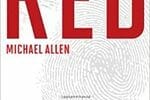Events | 2014
An evening conversation with Mary Habeck (in Washington, D.C.)
Tuesday, Dec 02, 2014 | 6:30 pm | National Press Club (Washington, D.C.)
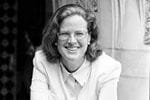
The Clements Center for History, Strategy & Statecraft and The Trinity Forum are delighted to invite you to an evening conversation with Dr. Mary Habeck and Dr. Paul D. Miller (respondent) on “God & Jihad: How ISIS and Al Qa’ida are Transforming the Middle East” at the National Press Club in Washington, D.C. on Tuesday, December 2 at 6:30pm.
Henry R. Nau
Thursday, Nov 20, 2014 | 12:15 pm | SRH 3.122

Please join the Clements Center and Alexander Hamilton Society for “Conservative Internationalism: Armed Diplomacy under Jefferson, Polk, Truman, and Reagan” with Dr. Henry Nau of George Washington University on November 20 at 12:15 in SRH 3.122.
Grand Strategy and the Anglo-American World View: A Century of the Special Relationship
Friday, Nov 14, 2014 | | King's College London

The Clements Center for History, Strategy & Statecraft and King’s College London are pleased to host their second annual conference titled “Grand Strategy and the Anglo-American World View: A Century of the Special Relationship” at King’s College London’s Strand Campus.
Michael Green
Wednesday, Nov 05, 2014 | 12:15 pm | SRH 3.122
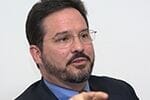
Michael Green is an associate professor of international relations at Georgetown University. He is also a senior adviser and holds the Japan Chair at CSIS.
Kurk Dorsey
Wednesday, Oct 29, 2014 | 12:15 pm | Eastwoods Room, Texas Union

The Clements Center for History, Strategy & Statecraft and the Robert S. Strauss Center for International Security and Law jointly invite you to a public presentation with Dr. Kurk Dorsey, Associate Professor of History at the University of New Hampshire, titled “When the Bear Picked up a Harpoon: What Soviet Whaling Tells us about the Environmental History of the Cold War,” on Wednesday, October 29th from 12:15-1:30pm in the Eastwoods Room, Student Union Building 2.102
Intelligence Reform and Counterterrorism after a Decade: Are We Smarter and Safer?
Thursday, Oct 16, 2014 | | AT&T Hotel and Conference Center and Blanton Auditorium
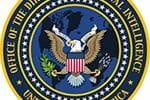
It has been a decade since the Intelligence Reform and Terrorism Prevention Act of 2004 ushered in a sweeping reorganization of the U.S. intelligence community, creating the Office of the Director of National Intelligence and the National Counterterrorism Center.
Christian Caryl
Wednesday, Oct 01, 2014 | 12:15 pm | SRH 3.122

Why are Shiites and Sunnis tearing each other apart in the Middle East? Why has China’s rise transformed the global economy? And why is the United States only just extracting itself from a 13-year war in Afghanistan?
Evening Conversation with William Inboden (Washington, D.C.)
Thursday, Sep 25, 2014 | 6:30 pm | The Army Navy Club in Washington, D.C.

Please join The Trinity Forum and Clements Center for an evening conversation with Executive Director William Inboden at 6:30pm on Thursday, September 25th at The Army Navy Club in Washington, D.C. This Evening Conversation is the first in a four part series on “God & Geopolitics: Religion and National Security in an Era of Instability.”
A Conversation with Ambassador Jack Matlock, Jr.
Tuesday, Sep 23, 2014 | 12:15 pm | LBJ Library Atrium
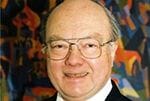
The Clements Center, Robert S. Strauss Center for International Security and Law, and the LBJ Presidential Library jointly invite you to a conversation with Ambassador Jack Matlock, Jr. The event will take place on Tuesday, September 23rd from 12:15pm-1:30pm in the 10th Floor Atrium of the LBJ Library. The event is free and open to the public.
Colonel Gregory Daddis
Tuesday, Sep 16, 2014 | 12:30 pm | Eastwoods Room, Texas Union
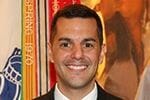
In 1984, less than a decade after the fall of Saigon, journalist David Halberstam claimed “the American military apparatus in Vietnam [was] a vast lying machine, telling Washington what Washington wanted to hear and insisted upon hearing. The purpose of this lying machine was to propagandize our alleged progress in the war and to convince Congress and the American public to support the war.”
Maymester in London Information Session
Monday, Sep 15, 2014 | 3:00 pm | SAC 1.106

Please join the Clements Center to learn more about the Maymester in London program “The British Strategic Tradition and Its Influence on the United States.”
Michael Auslin
Tuesday, Sep 09, 2014 | 12:15 pm | SRH 3.122

Michael Auslin is a resident scholar and the director of Japan Studies at the American Enterprise Institute (AEI), where he studies Asian regional security and political issues.
Should I Stay or Should I Go? Two Perspectives on U.S. Engagement in Afghanistan
Tuesday, Sep 09, 2014 | 5:15 pm | SRH 3.124

Please join the Clements Center and Alexander Hamilton Society for “Should I Stay or Should I Go? Two Perspectives on U.S. Engagement in Afghanistan,” Tuesday, September 9 at 5:15 pm in SRH 3.124.
War, Law, and Civics: Lessons from the U.S. Capitol’s Ancient Statesmen
Wednesday, Jun 11, 2014 | 2:30 pm | TBD
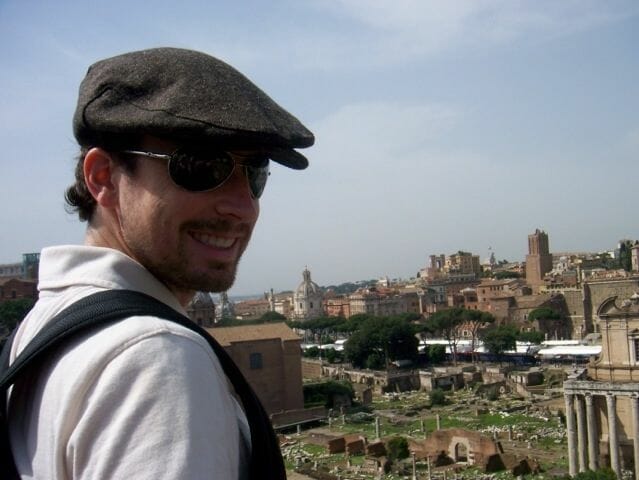
Steele Brand is a Postdoctoral Fellow at the Clements Center for History, Strategy and Statecraft. Brand’s research explores how constitutional ideals in the ancient world engendered civic militarism, particularly in Israel, Greece, and Rome.
“The First Grand Strategists? War and Politics in Ancient Egypt and Iraq” with Garrett Fagan
Wednesday, Apr 23, 2014 | 12:15 pm | Eastwoods Room, Texas Union
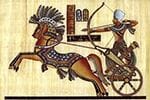
In this lecture Garrett G. Fagan considers the geopolitical and military situation in the Ancient Near East, especially in the Early Dynastic III Period of Sumer (ca. 2500-2100 BCE) and the Late Bronze Age (ca. 1500-1100 BCE), and explores what the evidence tells us about any supposed “Grand Strategy” the various players were adhering to. He also asks the more basic question of whether or not such early states even had the apparatus to formulate “Grand Strategy” in the first place.
Company Man: Thirty Years of Controversy and Crisis in the CIA
Tuesday, Apr 22, 2014 | 12:15 pm | SRH 3.122
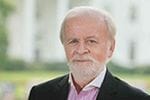
The Clements and Strauss Centers invite you to a presentation with John Rizzo, Former Acting General Counsel of the CIA, on Tuesday, April 22 from 12:15-1:30pm in SRH 3.122. Rizzo will be discussing his recently published book, Company Man: Thirty Years of Controversy and Crisis in the CIA. A book signing will follow the presentation.
Iraq’s Biggest Lesson: What We Must Learn From Our Ten Year Rebuilding Program in Mesopotamia
Thursday, Apr 17, 2014 | 12:15 pm | SRH 3.122
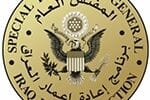
In 2003, the United States entered Iraq expecting a short stay and a modest rebuilding program. Those plans evaporated quickly. Efforts soon turned from a focus on liberate and leave to a new-found strategy of occupy and rebuild. This enormous shift fundamentally altered the arc of our energies and investment, foisting forward a continuous train of challenges that the American “civ-mil” bureaucracy was not well suited or prepared to handle.
Isolationism: Policies of the Past and Lessons for Today
Wednesday, Apr 16, 2014 | 5:15 pm | SRH 3.124

The Associated Press reports, “Americans’ Isolationism on the Rise.” Ron Paul captured 23% of the vote in the 2012 New Hampshire primary. Some are now talking about his son, Sen. Rand Paul, as the front-runner for the GOP nomination.
The Clements Center Presents U.S. Senator Marco Rubio
Tuesday, Apr 15, 2014 | 4:00pm | Blanton Museum Auditorium
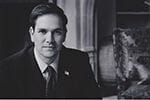
U.S. Senator Marco Rubio (R-FL) will be speaking at the University of Texas on Tuesday, April 15th at 4:00pm. This event is free and open to the public but advance registration is required.
The National Security Agency at the Crossroads
Thursday, Apr 03, 2014 | 8:30 am | AT&T Executive Education and Conference Center

The Intelligence Studies Project is a joint venture of the Strauss Center and Clements Center at the University of Texas at Austin, aiming to encourage policy-relevant academic inquiry into the past, present, and future of intelligence agencies and the legal, policy, and technological environments in which they operate.
The History Behind the Hustle: Petrodollars, Abscam, and Arab-American Political Activism, 1973-1981
Thursday, Mar 20, 2014 | 4:00 pm | History Department, First Floor

The sharp spike in the price of oil in the early 1970s provided petroleum-producing countries with enormous revenues–petrodollars–to invest in the global economy. By the second half of the decade, there was widespread fear in the United States that Arab governments, companies, and individuals were using their vast wealth the “buy up America.”
Realpolitik: Ancient to Modern with Arthur Eckstein
Wednesday, Mar 19, 2014 | 12:15 pm | Eastwoods Room, Texas Union

It is clear that the foundations of Realist international systems theory, which we see in modern university political science departments (as well as in the State Department) can be found in the thinking of ancient intellectuals. That is, ancients understood that states existed in an anarchy without international law, that this required them to engage consistently in power-maximizing behavior (power-maximizing was natural); and since all states were engaged in this power-maximizing activity, frictions and wars between them were naturally frequent.
The Generals: American Military Command from WWII to Today
Monday, Mar 03, 2014 | 12:15 pm | SRH 3.122
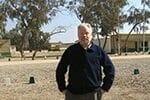
Thomas E. Ricks has made a close study of America’s military leaders for three decades, and in The Generals, he chronicles the widening gulf between performance and accountability among the top brass of the U.S. military. While history has been kind to the American generals of World War II—Marshall, Eisenhower, Patton, and Bradley—it has been less kind to others, such as Koster, Franks, Sanchez, and Petraeus. Ricks sets out to explain why that is.
New World, Old Wisdom: Foreign Policy and the Classics with Bruce Thornton
Wednesday, Feb 26, 2014 | 12:15 pm | Eastwoods Room, Texas Union

Until around 1800, states viewed foreign policy much as Thucydides did: as assuming a constant human nature driven by fear, self-interest, or honor. As such, war was considered a constant of human life, and peace “just a name,” as Plato says. The modern world rejected this realism, believing that human nature is perfectible, that states could be motivated by a “harmony of interests” that could be codified in international laws and covenants.
National Security Challenges Ahead for the United States
Thursday, Feb 13, 2014 | 5:30 pm | Bass Lecture Hall
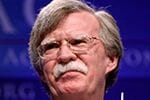
John R. Bolton, a diplomat and a lawyer, has spent many years in public service. From August 2005 to December 2006, he served as the U.S. permanent representative to the United Nations. From 2001 to 2005, he was under secretary of state for arms control and international security.
Moral Man and Immoral Foreign Policy: The Ironies of International Politics
Monday, Feb 10, 2014 | 12:15 pm | Eastwoods Room, Texas Union
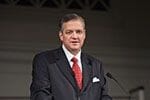
Dr. R. Albert Mohler Jr. serves as president of The Southern Baptist Theological Seminary – the flagship school of the Southern Baptist Convention and one of the largest seminaries in the world.
Blinking Red: Crisis and Compromise in American Intelligence After 9/11
Thursday, Jan 23, 2014 | 12:15 pm | SRH 3.122
